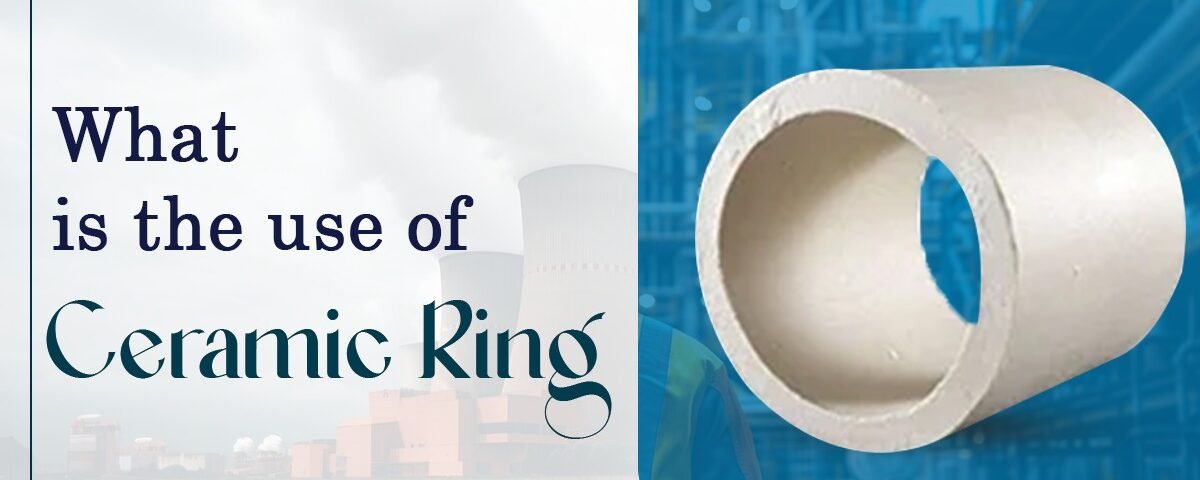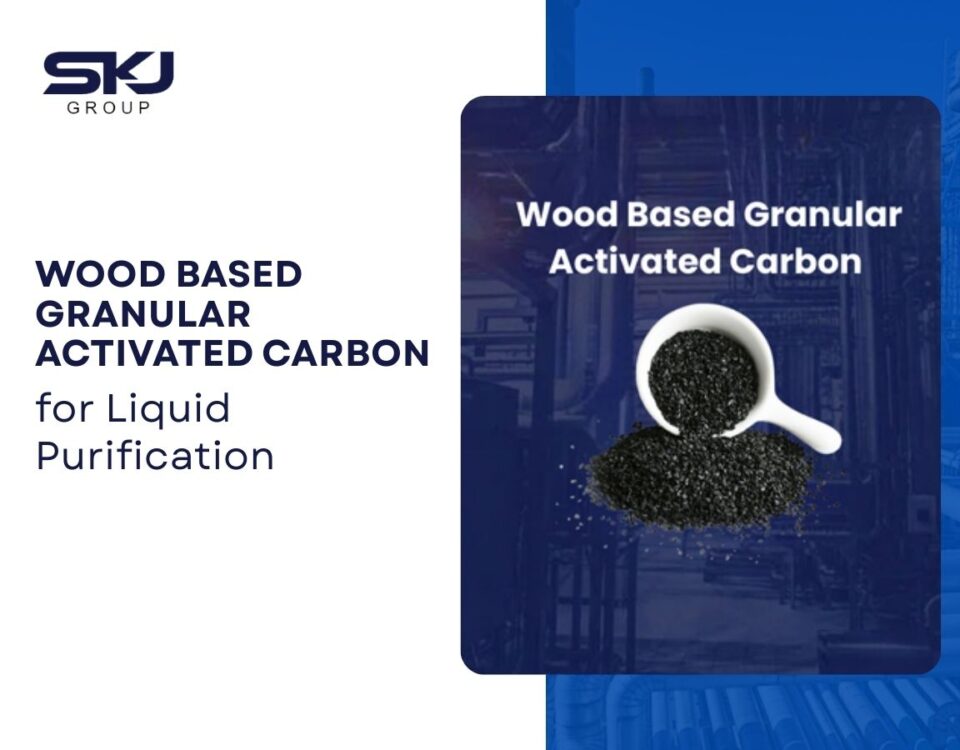What is the Use of Ceramic Ring?

What Are the Advantages of Honeycomb Structure?
January 9, 2025
What Are Pall Rings Used For?
February 8, 2025If you’re in the industrial sector, you’ve likely come across the term “ceramic ring” in various applications. But what exactly is its role, and why should you care? Ceramic rings, especially in industrial use, are crucial components known for their durability, heat resistance, and versatility. Whether you’re involved in manufacturing, chemical processing, or water treatment, understanding the importance of ceramic rings can help you optimize your operations and improve your product quality.
In this post, we will explore the many industrial uses of ceramic rings, their key benefits, and how choosing a trusted ceramic ring manufacturer can make all the difference for your business. By the end, you’ll have a better understanding of ceramic rings, why they are so essential in industrial processes, and how to select the right ceramic ring supplier for your needs.
What are Ceramic Rings?
Ceramic rings are cylindrical components made from ceramic materials, specially designed for industrial applications. These rings are known for their excellent resistance to heat, corrosion, and chemical reactions, making them perfect for extreme environments.
Key Benefits of Ceramic Rings:
- Durability: Ceramic rings are designed to withstand wear and tear even in harsh environments.
- Heat Resistance: They can handle high temperatures, making them ideal for use in furnaces, kilns, and other high-heat processes.
- Chemical Stability: Ceramic rings do not react with chemicals, making them suitable for use in reactors, filtration, and chemical processing.
- Lightweight: Despite their strength, ceramic rings are lightweight and easy to handle.
Common Industrial Uses of Ceramic Rings
1. Mechanical Seals
One of the most common applications of ceramic rings is in mechanical seals. In industrial machinery, these seals prevent leakage of fluids and gases, ensuring that equipment runs smoothly and efficiently.
Why Ceramic Rings for Mechanical Seals?
- Heat Resistance: They can withstand high temperatures without degrading.
- Chemical Resistance: Ideal for use in industries that handle corrosive substances.
- Long-lasting: Their durability reduces the frequency of maintenance and replacement.
Real-World Example: In chemical plants, ceramic rings are used in pumps and compressors to ensure that no fluids or gases leak from sensitive equipment, improving operational efficiency.
2. High-Temperature Insulation
Ceramic rings are also employed in high-temperature insulation applications, particularly in furnaces, kilns, and boilers. Due to their ability to withstand extreme temperatures, ceramic rings help prevent heat loss and maintain energy efficiency.
Why Ceramic Rings for Insulation?
- Excellent Heat Resistance: These rings can withstand temperatures that would melt or deform other materials.
- Durability: They maintain their insulating properties even under long-term exposure to high heat.
Real-World Example: In the production of ceramics or metals, ceramic rings are used in furnaces to ensure heat is efficiently retained, reducing energy costs and improving process consistency.
3. Chemical Processing
In chemical processing, ceramic rings play a vital role in reactors and pipelines. Their inert properties make them suitable for handling corrosive chemicals without compromising the safety or quality of the process.
Why Ceramic Rings for Chemical Processing?
- Chemical Inertness: They do not react with chemicals, ensuring the safety and purity of industrial processes.
- Mechanical Strength: Ceramic rings can handle the pressures and stresses found in chemical reactors.
Real-World Example: Ceramic rings are used in reactors for the production of fertilizers, where they support the chemical reactions without interacting with the chemicals being processed.
4. Water and Gas Distribution Systems
In water treatment plants and gas distribution systems, ceramic rings are essential components for ensuring smooth, reliable operation. They provide a high level of durability in systems exposed to constant pressure and harsh environments.
Why Ceramic Rings for Distribution Systems?
- Corrosion Resistance: Ceramic rings do not corrode when exposed to water or gas, ensuring long-term performance.
- Durability: Their wear resistance ensures they can last for many years without replacement.
Real-World Example: In water filtration systems, ceramic rings are used to maintain the flow of water while also acting as a filtration medium, removing harmful particles.
Why Choose a Trusted Ceramic Ring Manufacturer?
When selecting ceramic rings for industrial applications, it is crucial to work with a reliable supplier. Here’s why:
1. Quality Assurance
Leading ceramic ring manufacturers ensure that their products meet strict quality standards, ensuring they perform well in even the most demanding industrial environments.
2. Customization Options
Many industrial applications require customized ceramic rings in specific sizes, shapes, or finishes. Trusted suppliers can provide tailored solutions to meet these unique needs.
3. Global Reach
Working with experienced ceramic ring exporters ensures that your products are delivered on time, and you have access to global supply chains. This is especially important for industries that operate internationally.
4. Cost-Effectiveness
A trusted ceramic ring manufacturer offers competitive pricing while maintaining high quality, helping you keep production costs in check without sacrificing performance.
Why SKJ Group is a Leading Ceramic Ring Supplier
SKJ Group, one of the top ceramic ring manufacturers in India, is known for its commitment to quality and innovation. Here’s why businesses trust SKJ Group for their ceramic ring needs:
- Wide Range of Applications: SKJ Group manufactures ceramic rings for various industrial uses, from sealing and insulation to chemical processing.
- Customization: They can produce ceramic rings in different sizes, shapes, and designs to meet specific industrial requirements.
- Global Exporting Capabilities: As a trusted ceramic ring exporter, SKJ Group provides timely delivery to clients worldwide, ensuring reliable service across borders.
- Sustainability: SKJ Group emphasizes eco-friendly practices in their manufacturing process without compromising on quality.
By partnering with SKJ Group, you can ensure that your industrial processes run smoothly and efficiently, thanks to the high-quality ceramic rings they provide.
FAQs About Ceramic Rings
1. What industries use ceramic rings? Ceramic rings are widely used in industries such as chemical processing, water treatment, mechanical engineering, and high-temperature insulation.
2. Can ceramic rings withstand high temperatures? Yes, ceramic rings are known for their excellent heat resistance, making them ideal for use in high-temperature applications like furnaces and kilns.
3. Why choose SKJ Group for ceramic rings? SKJ Group offers high-quality, customized ceramic rings with reliable export capabilities and a focus on sustainability, making them a trusted supplier worldwide.
4. How do ceramic rings improve industrial efficiency? Ceramic rings provide durable, heat-resistant, and chemically stable components that reduce downtime and maintenance costs, enhancing overall operational efficiency.
Conclusion
Ceramic rings are indispensable in many industrial applications, offering superior heat resistance, durability, and chemical stability. Whether you’re working in chemical processing, mechanical sealing, or water distribution, choosing high-quality ceramic rings from a trusted supplier like SKJ Group can make a significant impact on your operational efficiency. If you’re looking for a reliable ceramic ring supplier, SKJ Group is your go-to partner for innovative solutions and dependable service.




